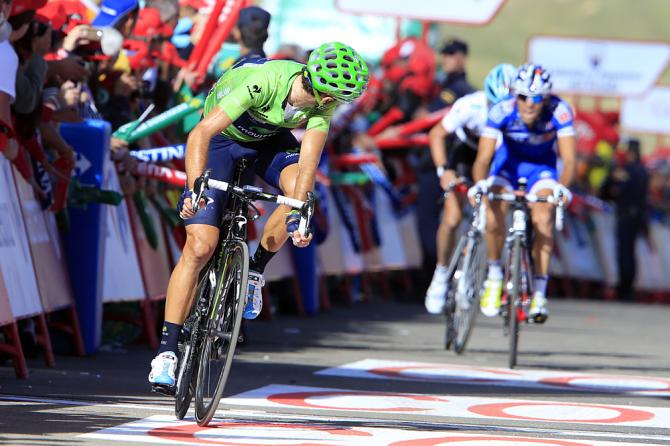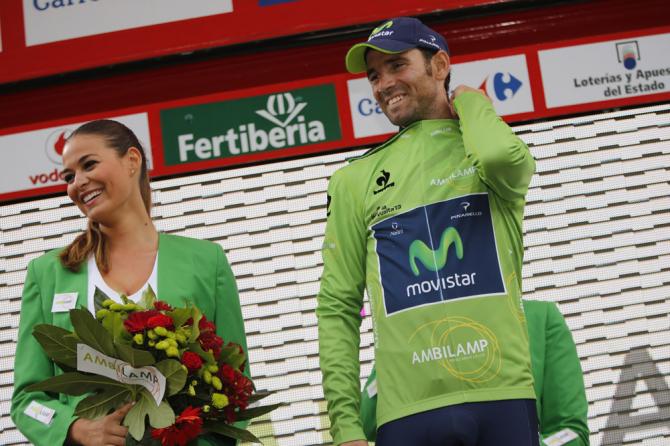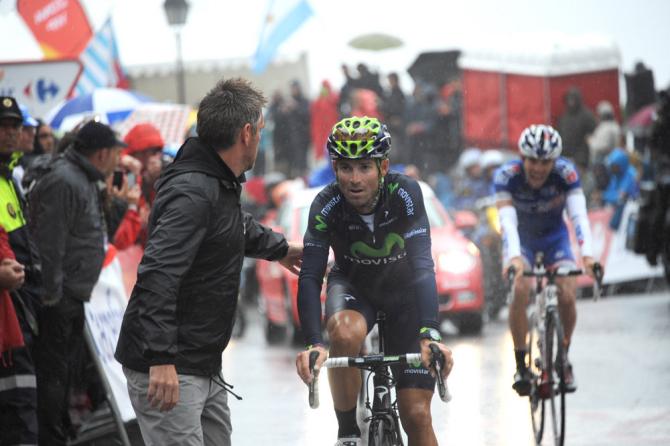Valverde reduces Vuelta a España GC fight to four riders
Prefers second overall in Madrid to victory on Angliru



Alejandro Valverde (Movistar), currently third overall in the Vuelta a España, met the press on Tuesday’s second rest day looking even thinner than usual but as determined as ever to fight Vincenzo Nibali (Astana) all the way to Madrid.
“I was already a bit more motivated after I saw that Nibali was not looking so good on the stage to Peyragudes,” Valverde said, “and now after what happened yesterday [ when Nibali lost more time – ed.], I’m feeling even more confident.
“Nibali is one big rival, and Chris Horner (RadioShack-Leopard) is another. I would even say that in the mountains, Horner is a little bit stronger than Nibali. At the start, we didn’t really count on Horner very much, but that changed a lot after Hazallanas [the mountain on stage 10 where Horner took the lead for a second time.] And if he hadn’t had such a poor time trial, he’d even be ahead now.”
Valverde reduced the battle for the Madrid podium to the four frontrunners on the overall standings, saying that “[Domenico] Pozzovivo (Ag2r-La Mondiale) is still up there, but he’s always losing a little bit of time each day.
“In any case, Nibali is surely most worried about Horner, given he’s at 28 seconds, and I’m at 1:16.”
It’s not often remembered that Valverde finished second on the Angliru in the 2008 Vuelta behind Alberto Contador, but the Spaniard says he would prefer a second place overall in Madrid to going one better than 2008 and winning on Spain’s most daunting mountain climb. “It’s good to have in your palmares, but it’s one stage and that’s it. In any case, if I win there, I’m bound to be doing well in the overall.”
Valverde named Peña Cabarga and the Angliru as the two most dangerous stages in the remainder of the Vuelta, saying that “a minute’s advantage on the Angliru for the leader would mean he’s ok. But 28 seconds, that’s another story. The Angliru is going to be very decisive.”
The latest race content, interviews, features, reviews and expert buying guides, direct to your inbox!
Valverde took a sideswipe, too, at the length of the Vuelta’s transfers – “really long this year” – and the fact that different riders have very different means of transport as their disposal to get to their hotels each evening.
“I’ve been told Nibali used a helicopter to get to his hotel to get off the mountain yesterday and we took nearly three hours to get here in the bus. That’s not the same as half an hour by helicopter, when it comes to resting up after stages.” But although this Vuelta is hard, and the transfers tough, too, Valverde said that “the 2009 Vuelta [which he won and which had mountain stages with 6,000 metres of climbing] was even more difficult.”
Alasdair Fotheringham has been reporting on cycling since 1991. He has covered every Tour de France since 1992 bar one, as well as numerous other bike races of all shapes and sizes, ranging from the Olympic Games in 2008 to the now sadly defunct Subida a Urkiola hill climb in Spain. As well as working for Cyclingnews, he has also written for The Independent, The Guardian, ProCycling, The Express and Reuters.
